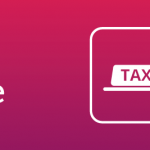Are you considering changing your car insurance company for a new one? Be sure to understand the proper way to go about it, or you could end up owing the insurer a pretty penny.
Some people believe all the have to do to cancel their car insurance is to cancel their direct-debit payment. However, this does not cancel the insurance policy, and you’ll still owe any remaining premium due.
Changing Insurers
Changing insurers is quite common—in fact, comparison shopping is a great way to find better prices and even better coverage for your car. However, there’s a right way and a wrong way to cancel your insurance.
When cancelling your current car insurance, you’ll first need to contact the insurer directly. There’s no way to avoid this.
Cancelling During the Cooling Off Period
If you’ve found a cheaper coverage and you’re in the cooling-off period, you have the right to cancel your current car insurance. The cooling-off period is legally required and it gives you the right to cancel during this period. The cooling-off period is 14 days. The cooling-off period begins when your coverage starts, or when you receive your insurance documents — whichever is later.
It’s worth knowing that some insurance providers do offer a longer cooling-off period—it may be as much as 30 days. However, all insurance companies are required to offer a minimum cooling-off period of 14 days.
When you decide to cancel, and your coverage has not gone into effect, you should receive a refund of any premium you’ve paid. However, if coverage has started, the insurer will charge you for the number of days your car was insured and will charge an administration fee.
Insurance companies may also charge other fees for setting up coverage
Other Things to Keep in Mind
If you’re selling your car, without replacing it, you should go ahead and cancel your car insurance right away. That way, you can avoid paying for car insurance coverage you don’t need.
Also, if you’re buying a new car, you usually don’t have to cancel your current policy. Most insurers will choose to update the current policy for the new car, which means your policy will be transferred to the new vehicle.
Keep in mind that you’ll more than likely be charged for changing the policy and your premium may go up, depending on the risk factors for the new car. Even so, this is still cheaper than cancelling your current policy.
Cancelling if You’ve Made a Claim
Most insurers do allow you to cancel your policy in the event of filing a claim. However, you will still have to pay the entire policy in full. If you’ve paid upfront, you won’t get a refund. And if you pay monthly, you’ll have to pay any remaining coverage in one lump sum.
When cancelling your car insurance, make sure to understand everything that’s involved. You may face some extra charges and fees. Also, understand that you must contact that insurer directly to cancel your insurance, to avoid having to pay the remaining premium amount due.


